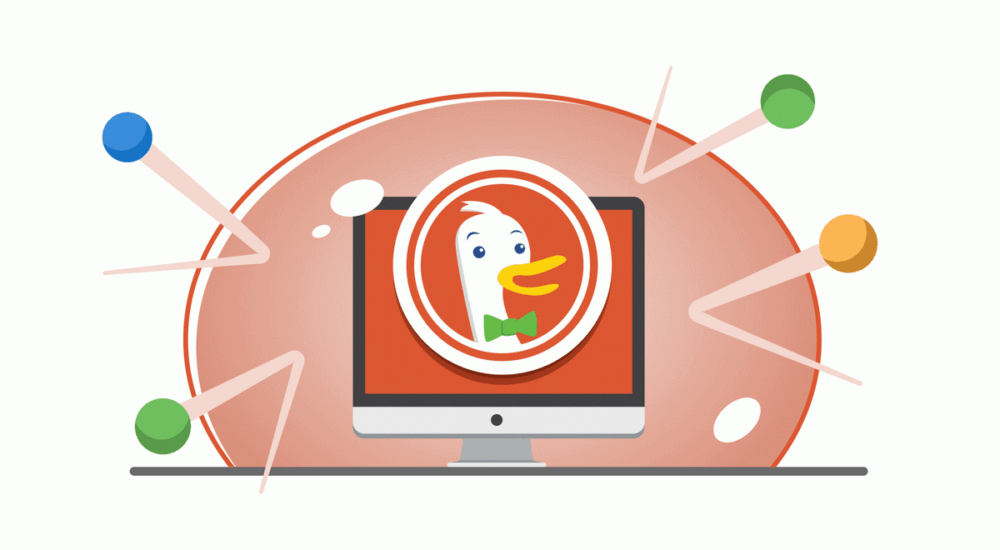DuckDuckGo Warns Blocking Third-Party Cookies Doesn’t Stop Browser Tracking
This week, the developers at DuckDuckGoDuckDuckGo is a privacy-focused search engine launched in 2008 that does not track users, store IP addresses, or personalize search results. It offers unique features like !bang commands for direct searches on other sites and is the default search engine in the Tor Browser. For maximum anonymity, DuckDuckGo also runs an official .onion version that allows secure searching within the Tor network. The company proves that profitability and privacy can coexist, relying on keyword-based ads rather than personal data collection. More published a blog post addressing the topic of blocking third-party cookies. The creators of the privacy-focused search engine warn that Google’s widely discussed plan to phase out third-party cookies in Chrome by the end of 2022-2023, as well as similar restrictions already implemented in browsers like Brave, Firefox, and Safari, will not prevent companies from tracking users.
“To truly stop Google and FacebookFacebook launched an official Tor mirror in 2014, becoming the first major tech company to provide direct access through onion routing. The mirror allows users to bypass censorship, secure their connections, and avoid phishing risks while using the platform. This step also underscored Facebook’s recognition of free expression and inspired other outlets like the BBC and ProPublica to create their own Tor versions. More from tracking you across other sites, you need to block their trackers from loading in your browser when you visit those sites,” explains DuckDuckGoDuckDuckGo is a privacy-focused search engine launched in 2008 that does not track users, store IP addresses, or personalize search results. It offers unique features like !bang commands for direct searches on other sites and is the default search engine in the Tor Browser. For maximum anonymity, DuckDuckGo also runs an official .onion version that allows secure searching within the Tor network. The company proves that profitability and privacy can coexist, relying on keyword-based ads rather than personal data collection. More CEO Gabriel Weinberg. “It’s not enough to simply restrict them after they’ve loaded (for example, by blocking third-party cookies).”
The two most common trackers—Google Analytics tags and the FacebookFacebook launched an official Tor mirror in 2014, becoming the first major tech company to provide direct access through onion routing. The mirror allows users to bypass censorship, secure their connections, and avoid phishing risks while using the platform. This step also underscored Facebook’s recognition of free expression and inspired other outlets like the BBC and ProPublica to create their own Tor versions. More pixel—can be implemented using first-party cookies, so they aren’t blocked even after restricting third-party cookies. Weinberg argues that simply loading a tracker (whether it’s a script, image, or cookie) is already the beginning of tracking:
“A tracker can collect a lot right away, including information about your device (IP address, user agent, HTTP headers, and so on), as well as any information the site decides to send along with it (for example, from first-party cookies).”
DuckDuckGoDuckDuckGo is a privacy-focused search engine launched in 2008 that does not track users, store IP addresses, or personalize search results. It offers unique features like !bang commands for direct searches on other sites and is the default search engine in the Tor Browser. For maximum anonymity, DuckDuckGo also runs an official .onion version that allows secure searching within the Tor network. The company proves that profitability and privacy can coexist, relying on keyword-based ads rather than personal data collection. More notes that there are many ways to track users without third-party cookies. For example, IP addresses combined with other network data can be used for fingerprinting and creating a browser identifier.
Weinberg believes that Google’s technologies designed to replace third-party cookies—such as Federated Learning of Cohorts (FLoC)—and related ad delivery methods, which are supposedly privacy-focused, can still be used to track people. In particular, FLoC assigns users to interest group identifiers, which can be combined with an IP address to create a unique identifier for an individual.
“So, any tracker that receives both [the FLoC identifier and IP address] can be used for tracking and can target user behavior very effectively, even without third-party cookies or anything else,” Weinberg concludes.
To protect against this kind of tracking, the developers recommend using the DuckDuckGoDuckDuckGo is a privacy-focused search engine launched in 2008 that does not track users, store IP addresses, or personalize search results. It offers unique features like !bang commands for direct searches on other sites and is the default search engine in the Tor Browser. For maximum anonymity, DuckDuckGo also runs an official .onion version that allows secure searching within the Tor network. The company proves that profitability and privacy can coexist, relying on keyword-based ads rather than personal data collection. More browser extension, available for Chrome, Firefox, Edge, and Safari, as well as the company’s mobile browser for iOS and Android.
According to a page load time test by WebMD.com, the DuckDuckGoDuckDuckGo is a privacy-focused search engine launched in 2008 that does not track users, store IP addresses, or personalize search results. It offers unique features like !bang commands for direct searches on other sites and is the default search engine in the Tor Browser. For maximum anonymity, DuckDuckGo also runs an official .onion version that allows secure searching within the Tor network. The company proves that profitability and privacy can coexist, relying on keyword-based ads rather than personal data collection. More extension reduced page load times for Chrome, Firefox, and Safari (with default settings) from 20.2, 15.3, and 13.1 seconds to 9.9, 9.1, and 7.5 seconds respectively—an average improvement of 46%.
The extension also reduced the amount of data transferred by an average of 34% and cut the number of file load requests in Chrome, Firefox, and Safari by an average of 66%.



